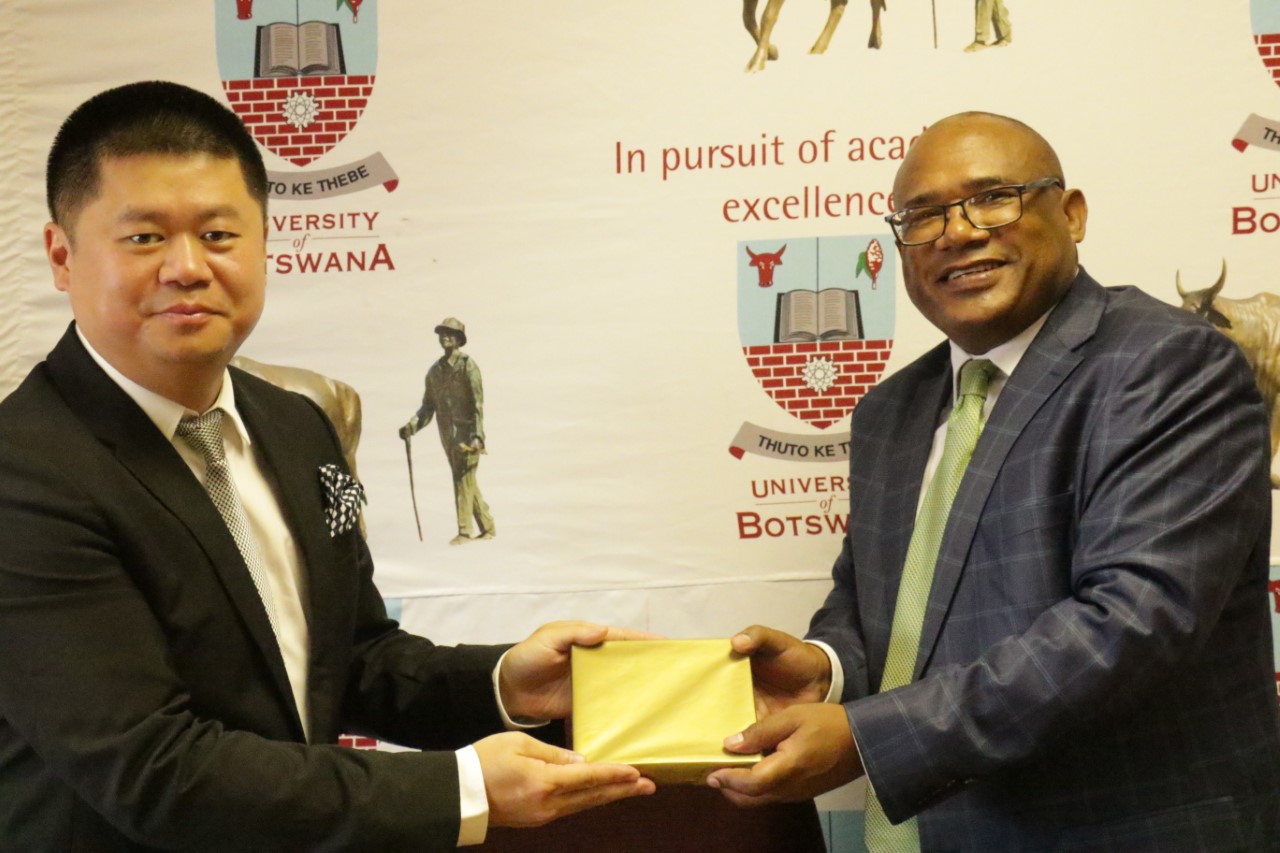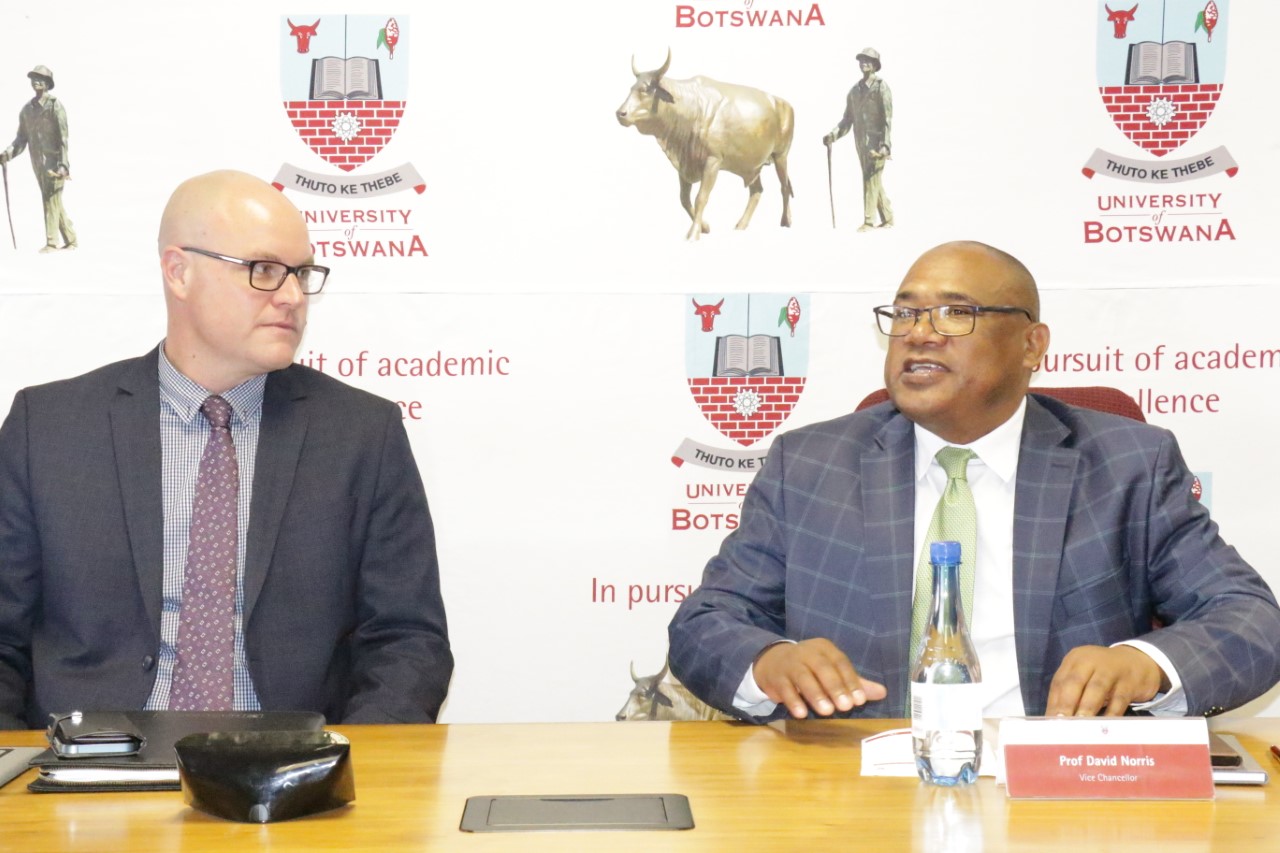University of Botswana to Benefit from Australia Africa University Network
 Vice Chancellor, Professor David Norris, says given the existing environmental and climatic similarities between Australia and Botswana, UB can learn a lot from Curtin University how to tackle challenges such as water scarcity, management and harvesting besides wastewater recycling.
Vice Chancellor, Professor David Norris, says given the existing environmental and climatic similarities between Australia and Botswana, UB can learn a lot from Curtin University how to tackle challenges such as water scarcity, management and harvesting besides wastewater recycling.
Professor Norris was welcoming a delegation from Curtin University, a member of the Australia Africa University Network (AAUN), to the University of Botswana recently. The delegation was on a fact-finding mission to establish areas of common interest for possible collaboration and partnership. Professor Norris also proposed joint university degrees between UB and Curtin University especially those that speak to the knowledge-based economy.
In response, International Relations and Dean Global Curtin University Office Africa, Associate Professor David Mickler, welcomed UB to AAUN. He said AAUN had been the main collaborative vehicle between Australia and Africa for the past ten years. Professor Mickler said the coming in of UB would open doors for capacity building and future collaborations with Curtin University as well as through strategic regional hubs and partnerships with other stakeholders.
International Business and Associate Deputy Vice-Chancellor, Global Curtin University, Professor Xiaotian Zhang, acknowledged the common challenges that both UB and Curtin University faced in that they could pool their human resources together to come up with sustainable solutions. He said Curtin University had strong roots in the fields of science, technology and engineering.
Professor Zhang stated that UB and Curtin University could work together to address issues of climate change, mining and Sustainable Development Goals. He further underscored the importance of UB nurturing talent through capacity building to create global solutions.
 UB Deputy Vice Chancellor Teaching and Learning, Professor Georges Ekosse, said UB could learn from Curtin University’s commercialization of its research work and how they raised third-stream income. He noted that while Botswana’s economy was still mineral based, transitioning to a knowledge-based economy was attainable through collaborative efforts.
UB Deputy Vice Chancellor Teaching and Learning, Professor Georges Ekosse, said UB could learn from Curtin University’s commercialization of its research work and how they raised third-stream income. He noted that while Botswana’s economy was still mineral based, transitioning to a knowledge-based economy was attainable through collaborative efforts.
UB Deputy Vice Chancellor Research and Enterprise, Professor Doreen Ramogola-Masire, said UB was transitioning from a predominantly teaching university to a research-intensive institution. As such, she said collaboration with Curtin University would help UB to have a smooth and meaningful transition.
Professor Ramokola-Masire further spoke about the importance of infusing new and researched based teaching methods.